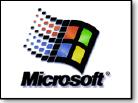|
Win 98 ready to roll
|
 |
June 23, 1998: 5:06 p.m. ET
Expectations are modest, but new operating system could get surprise lift
|
NEW YORK (CNNfn) - When Microsoft Corp. unleashes its Windows 98 operating system on the world Thursday, don't expect fireworks displays or light shows.
That's the way the company introduced Windows 95, but a lot can change in three years.
For Windows 95, customers lined up outside shops at midnight to be the first to get the new operating system, as if the software package were Rolling Stones tickets.
Windows 98 may be a bomb waiting to explode as far as the Justice Department is concerned, but analysts and Microsoft itself aren't expecting a stampede to local computer stores.
Last week, market-research firm Dataquest said it expects modest to low interest in upgrades to Windows 98 from Windows 95.
Though it forecast total shipments of 56.7 million, which would lead the worldwide operating system market, Dataquest said it expects Microsoft to sell only 5.5 million upgrade units this year.
While Microsoft has been touting Windows 98 as the best thing since, well, Windows 95, it hasn't exactly been in everyone's face about it.
The company reportedly spent $10 million on advertising and promotional campaigns for Windows 98. That's $2 million less than it spent for the rights to use the Rolling Stones' "Start Me Up" in its Windows 95 commercials.
A Microsoft official was quoted recently as saying Windows 98 could be a big "sleeper" hit.
"Microsoft" and "sleeper" in the same sentence? What gives?
Hidden changes
The main reason Windows 98 won't take the world by storm is that for most people, it looks and acts just like Windows 95.
Microsoft has touted the operating system's faster start-up and shutdown times, but most of the benefits over Windows 95 are under the hood and appeal to specialized users.
Game enthusiasts, for instance, will benefit from built-in support for joysticks and other multimedia hardware.
Mobile computing professionals will enjoy the ability to connect more than one communications device at a time on their laptops and better power management, which lets them conserve battery power. And there's better networking support for people who maintain corporate networks.
For the average user, however, the only significant change is the integration of the Internet Explorer Web browser (which is, of course, a bone of contention for federal regulators suing the company for antitrust violations).
Among other things, users can make Internet Explorer the default desktop screen. How much of a demand there is for such a feature is sketchy at best.
And Windows 98's public image up to this point hasn't exactly been shining. The operating system crashed during a demonstration given by Microsoft Chairman Bill Gates.
Cause, but no effect
So what does this mean for Microsoft's bottom line? Not much, according to analysts.
"I'm modeling it as if Windows 95 were selling at the rate it was already selling at," said Tom Hensel, an analyst at Everen Securities. "[Windows 98] staves off a potential drop-off in sales. But nobody expects any spike in earnings or any substantial drop-off."
So if Microsoft and the rest of the industry aren't expecting a blockbuster, the question becomes, "What does Microsoft have up its sleeve?"
Chris Le Tocq, director and principal analyst for Dataquest's Personal Computing Software Worldwide program, said Microsoft is holding down the fort until it releases its next consumer-oriented operating system, Windows 2000, which will be based on its Windows NT operating system designed for large corporate networks.
Brian Goodstadt, an analyst at S&P Equity Group, said corporate users will pass over Windows 98 for Windows NT version 5.
"[Windows] NT will be a much bigger release," he said. "That's about a year away."
Michael Kwatinetz of Deutsche Morgan Grenfell may be the only analyst who expects a spike in Microsoft's earnings due to Windows 98.
"It's going to be a bigger product in the corporate market than people realize because not everyone will be able to go to NT," he said. "People who realize they're not going to NT will like Windows 98. It's an easy install, and unlike Windows 95, you don't have to relearn the user interface."
Kwatinetz added Windows 98 will end up costing consumers less in the long run than Windows 95.
"Consumers were spending $600 or more for Windows 95 because they had to buy more memory and new applications," he explained. "With Windows 98, you just spend $100 for the product."
Goodstadt pointed out another unexpected advantage: the government's antitrust suit. In this case, there's no such thing as bad press.
"Sales might be better than expected because of all the publicity surrounding it," he said. "People may wonder what the big deal is and feel like they have to have it." 
-- by staff writer John Frederick Moore
|
|
|
|
|
|
Microsoft Corp.
|
Note: Pages will open in a new browser window
External sites are not endorsed by CNNmoney
|
|
|
|
 |

|

